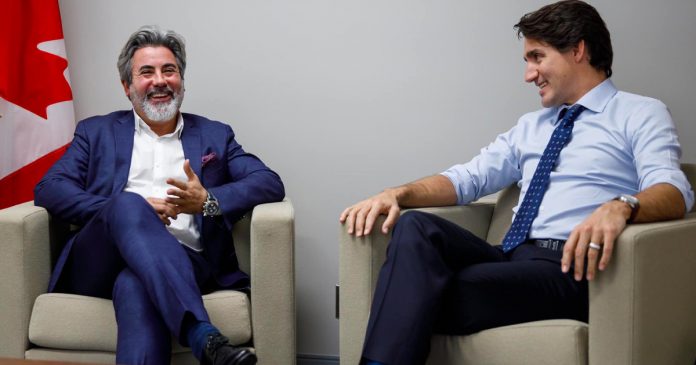Jordan Peterson and Conrad Black took aim at Bill C-11 – the Liberal government’s online censorship legislation – Tuesday at the third History of Civil Liberties discussion hosted by The Democracy Fund.
Peterson also warned the audience about the rise of artificial intelligence (AI) and its power to change the course of world history in the near future.
On Bill C-11, which could compel social media companies to promote government-determined Canadian content, Black asked Peterson what his advice would be for Canadians to preserve our freedom of expression on the internet.
“I think we have a blessing in disguise in the Liberal government because they’re too incompetent to be as tyrannical as they want to be,” Peterson began.
“The other thing that will happen is that anyone who has a creative bone in their body once they’re subject to the kind of limitations that the Trudeau government is trying to put on content providers – which is anyone by the way – all those creative people will just leave.”
Peterson continued, “for the typical Canadian, this legislation will really affect them. It will be a priori censoring. The government wants to have control over the search engine strategies. That’s everything, that’s the gateway into the world of information itself. It’s not good!”
Speaking to True North, AIR Creators Ecosystem spokesperson Nina Peleshenko echoed Peterson’s comments, saying that one of the challenges Canadian content creators will experience is the outflow of talent to other countries caused by the changes Bill C-11 seeks to implement.
On AI, Peterson warned the crowd of the “head-spinning” power that it will have over society.
“There are things coming down the pipeline with the artificial intelligence stuff that will make your head spin within the next year,” Peterson said. “Giants are going to walk the earth once more and we are going to live through that…maybe.
Peterson spoke about a new AI product called ChatGPT, which can instantly produce long-form text, equations, codes and scientific formulas when prompted by a human user.
Peterson told the crowd that he prompted ChatGPT to write him an essay that would be the 13th rule for his book Beyond Order written in a style that combines the King James Bible with the Tao Te Ching.
“It was written in about 3 seconds, 4 pages long and it isn’t obvious to me for better or worse that I would be able to tell that I didn’t write it,” Peterson told the stunned crowd.
On the state of Canada’s economy, Peterson and Black lamented the reality that Canadians make 40% less on average of what Americans make. “That’s quite the catastrophe,” Peterson said.
“And 30% less than the Republic of Ireland,” Black added. “When I first went there 60 years ago it was a very poor country and it had no resources. It’s scandalous.”
Peterson then predicted, “we can certainly do worse and we absolutely will.”
“It wouldn’t surprise me at all if within five years we’re at 40% of the US,” Peterson said.
Black concluded by that same time Canada would be passed economically by South Korea, Israel and the Czech Republic.
Peterson – a former University of Toronto professor – also slammed the state of higher education in the West, focusing particularly on the fall of the sciences to the woke movement.
“I don’t think there’s a lot of hope for universities. If you can subvert the entire grant process in Canada to an ideology that purports to claim on moral grounds that the way you should rank scientists is by their skin colour or their gender, there’s no bottom to how corrupt and perverse they can become. So I’m not particularly optimistic on that front. It’s pretty bloody appalling.”
This was the third History of Civil Liberties event hosted by The Democracy Fund this year. The previous two events featured Conrad Black and National Post columnist Rex Murphy.

























